The Big Plastic Count: Consumers confront their plastic footprint
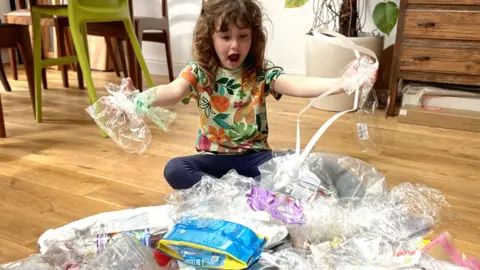 Jules Birkby
Jules BirkbyIt's hard not to feel guilty about the price our planet pays for plastic.
But when most affordable products come with plastic packaging, are we as consumers really in control?
For one week in May, more than 100,000 people in the UK carefully counted their plastic waste at home in a national investigation into plastic use and recycling. It was called the Big Plastic Count, run by organisations Greenpeace and Everyday Plastic.
So how did they get on, and what did they discover about their dependency on a material that has become a part of our everyday lives?
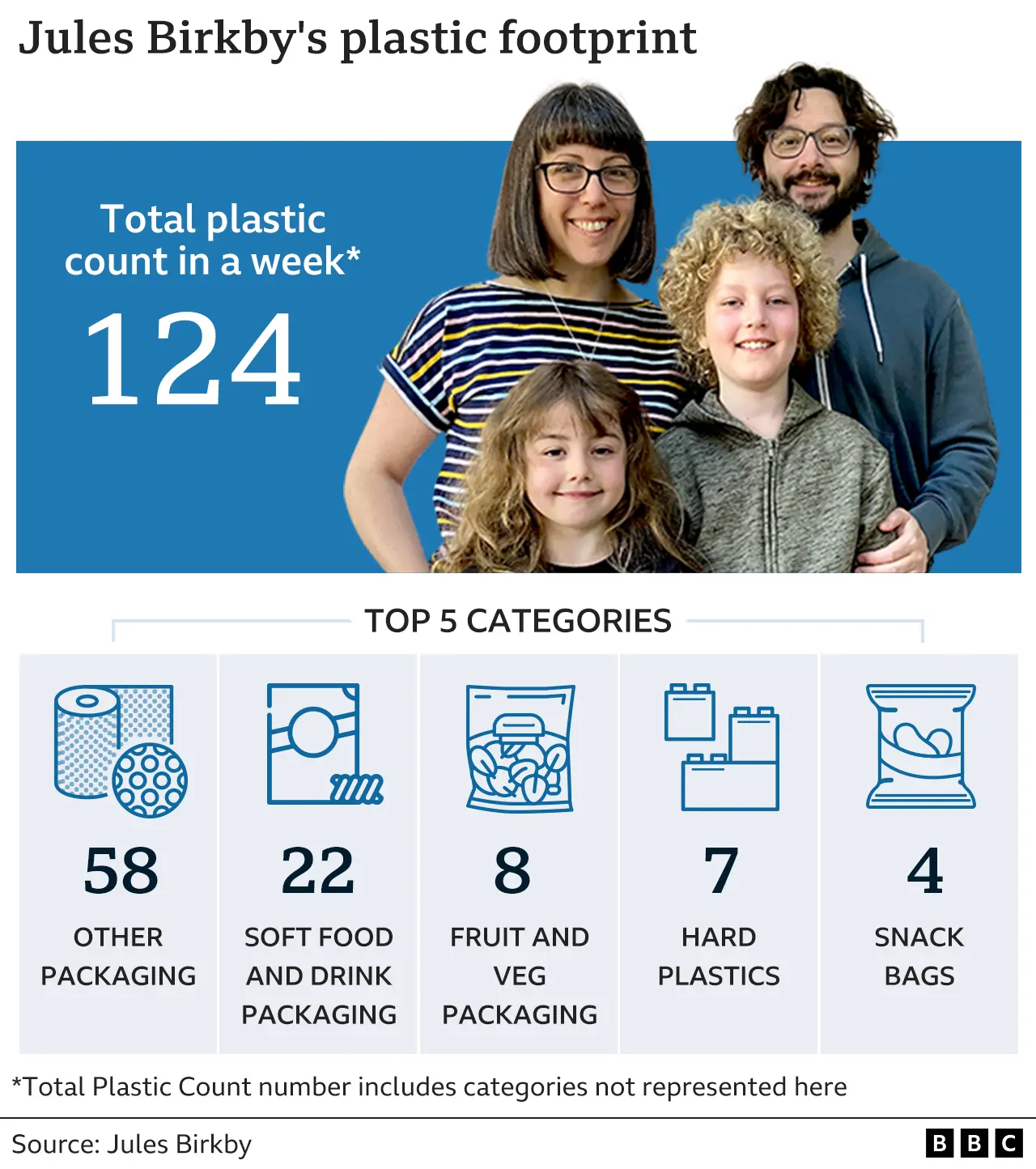
Jules Birkby, 41, and her family of four threw away 124 pieces of plastic during their week of counting. The packaging in party bags and sticker packs for her daughter Emmy's sixth birthday was the most frustrating, she says.
She had thought her household was quite low plastic and so was "shocked" by how much they used. "It's the hidden stuff that isn't recyclable - like pizza wrappers - that gets you," Jules, an artist in Leeds, explains.
"Every single sheet for the stickers in the party bags came individually wrapped in its own unrecyclable cellophane bag, then they were packed together in a bigger bag," she says.
Her children are passionate about protecting the environment but Jules says she finds it very hard as a consumer to make the right choices.
"We can only do so much. It's in the manufacturer's hands. The whole thing is such a juggle."
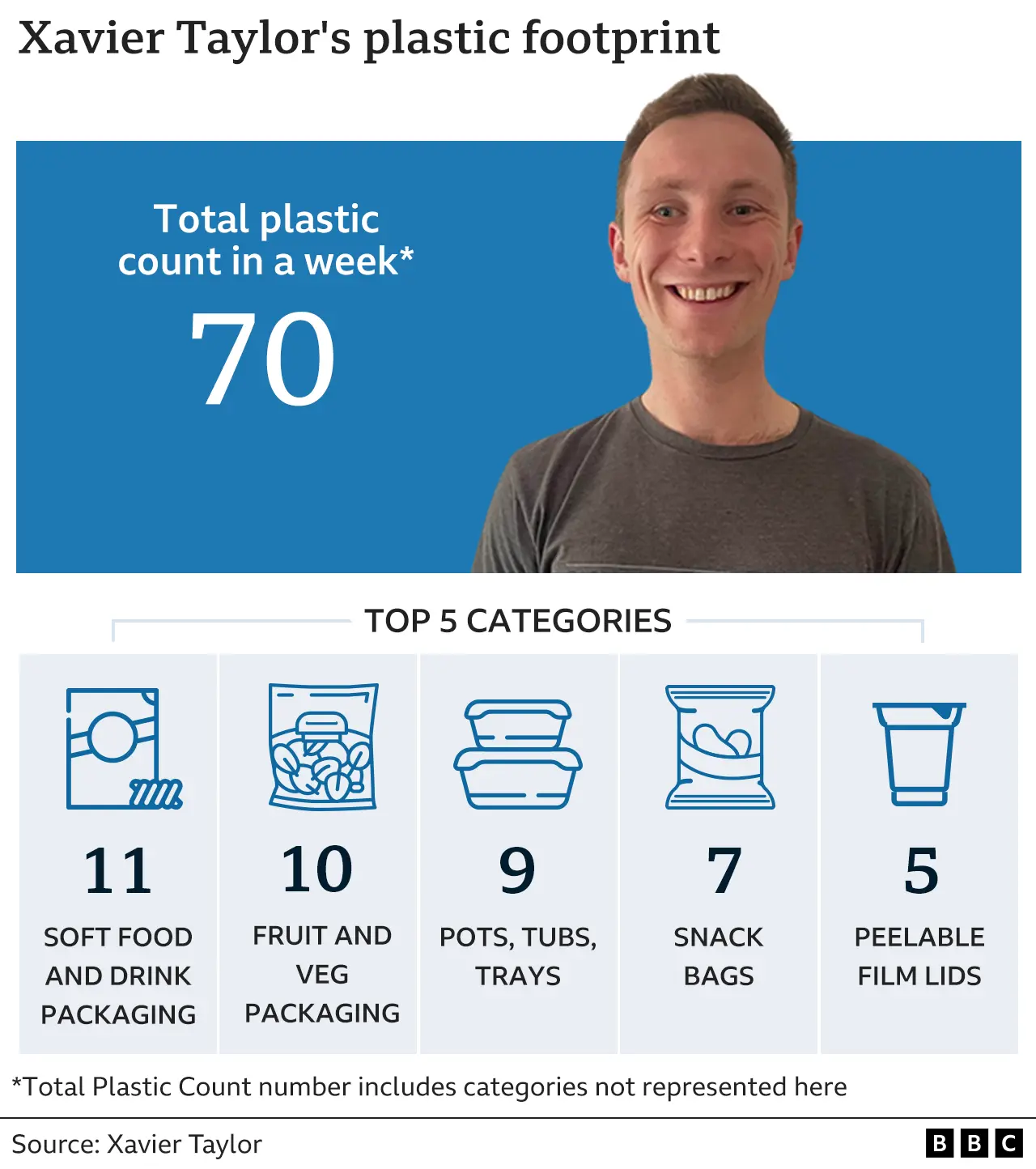
Xavier Taylor, a 25 year-old scheduler from Portishead in south-west England, who is applying to become a firefighter, says of the the 70 pieces of plastic he counted, it was the cucumber packaging that annoyed him the most.
He has family who live abroad where he says it's easy to buy fruit and vegetables without any plastic.
He'd also like to see more local produce in shops direct from farmers, which would reduce the need for excessive packaging used to transport goods long distances.
"I get progressively got more frustrated with the fact that supermarkets sell so much plastic." he says.
Even if he could find plastic-free alternatives, he says the cost is prohibitive.
"The price of everything is going up, but things that are better for the environment are much more expensive," he says.
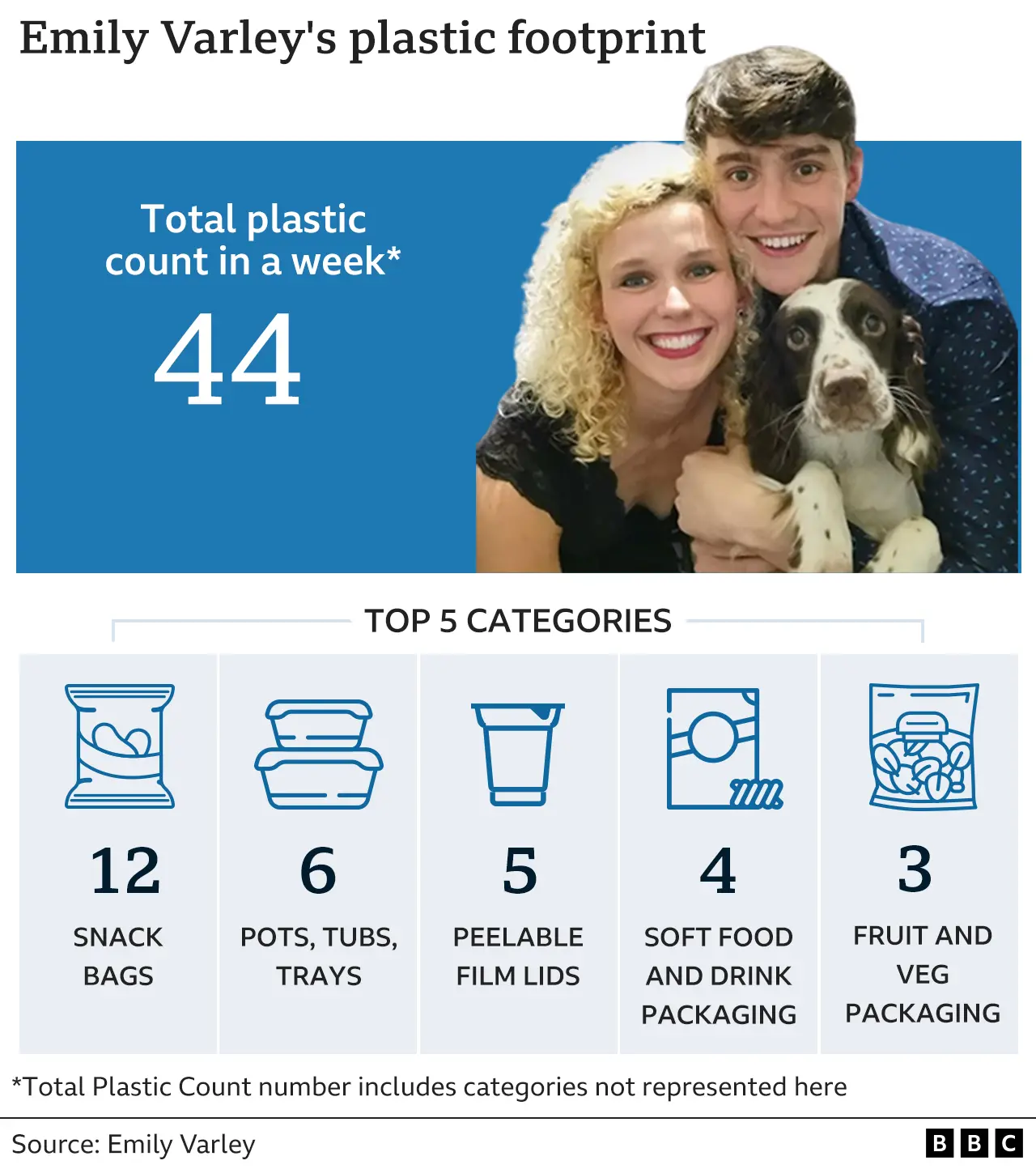
Emily Varley, 27, and her husband Adrian counted 44 items of plastic - "It's the fruit and vegetable packaging that really gets to me," she says.
"Why must apples or peppers come in a plastic bag? And when they are loose, why is it more expensive," Emily, a business analyst in Bedfordshire, asks.
She tries to substitute plastic packaging for eco-alternatives, like laundry tablets, but believes going fully plastic-free is for "people with more money and time".
"Why is pasta from a re-fill shop five times more expensive," she asks.
Supermarkets, brands and the government need to lead the way, she says. "Most people care and would change what they buy - but don't have the option".

What the government and supermarkets say:
- The Department for Environment, Food and Rural Affairs told BBC News that they have restricted the use of plastic straws and banned plastic-stemmed cotton buds.
- The government is also introducing a deposit return scheme for plastic bottles - consumers pay a small deposit which they get back when the plastic is returned.
- It is also consulting on banning single-use plastic plates, cutlery and balloon sticks.
- On behalf of supermarkets, the British Retail Consortium told BBC News that the industry is investing in re-use and refill options "with the aim to become mainstream in the next five years".
- The BRS also says that many supermarkets are working with suppliers to "eliminate problematic or unnecessary single-use plastic packaging".

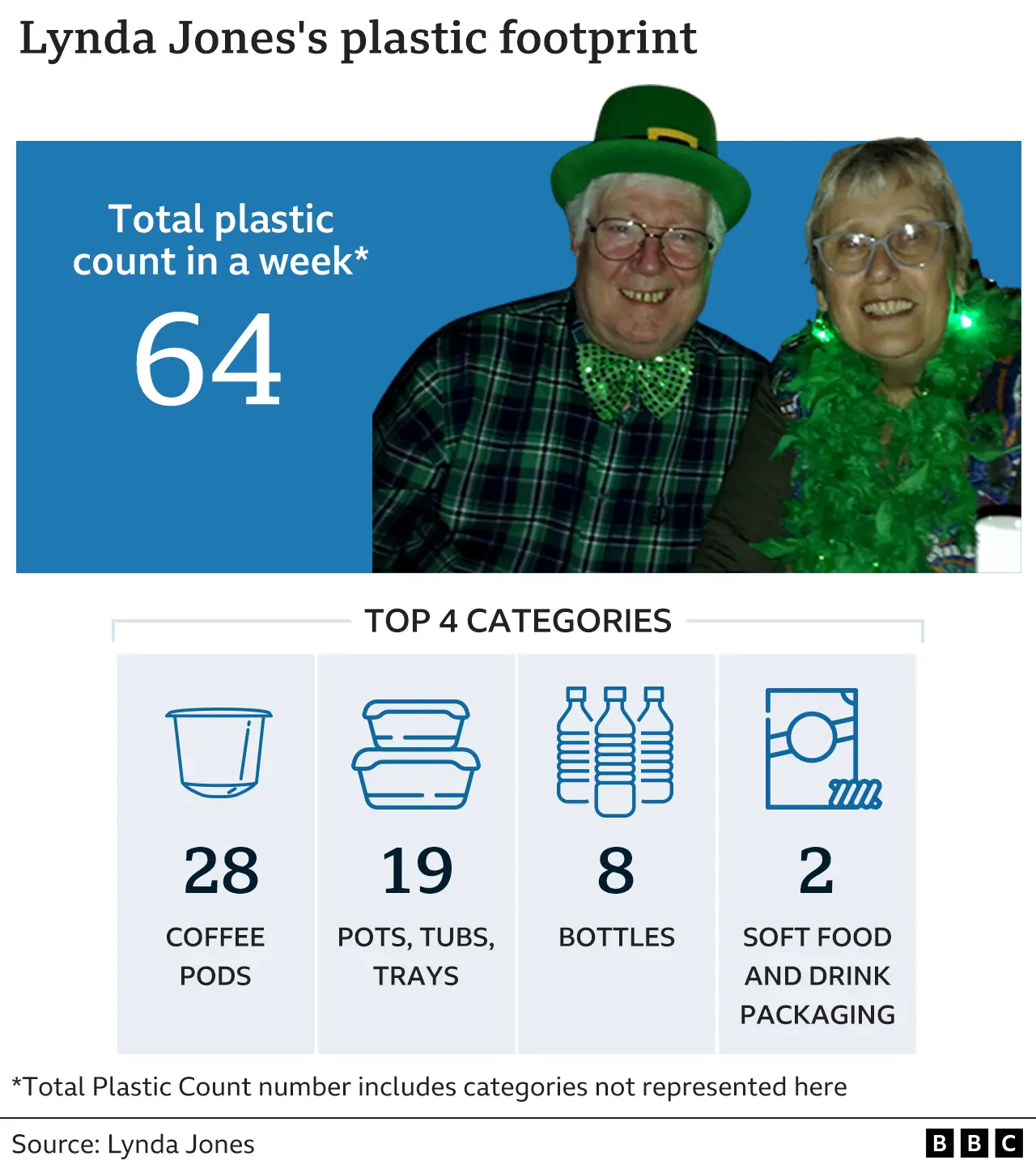
"I just didn't think we used that much plastic stuff. It's eye-opening," says Lynda Jones, 71, who tallied up her and her husband's plastic consumption. They used 64 plastic items, including 28 coffee pods.
The couple are both disabled and can't go to the supermarket, so their shopping is delivered to their home in Worcestershire. That means she can't choose to buy loose fruit and vegetables that doesn't come wrapped in packaging.
"Plastic really annoys me more than anything. There's no need to put packaging on everything," Lynda explains.
The industry doesn't seem to be on the same page when it comes to recycling, she suggests, pointing out that one brand might make recyclable packaging for a product but a rival doesn't for the same item.
"Things are changing slowly," she says. "But by now, in 2022, a lot more should have been done to solve this problem."
